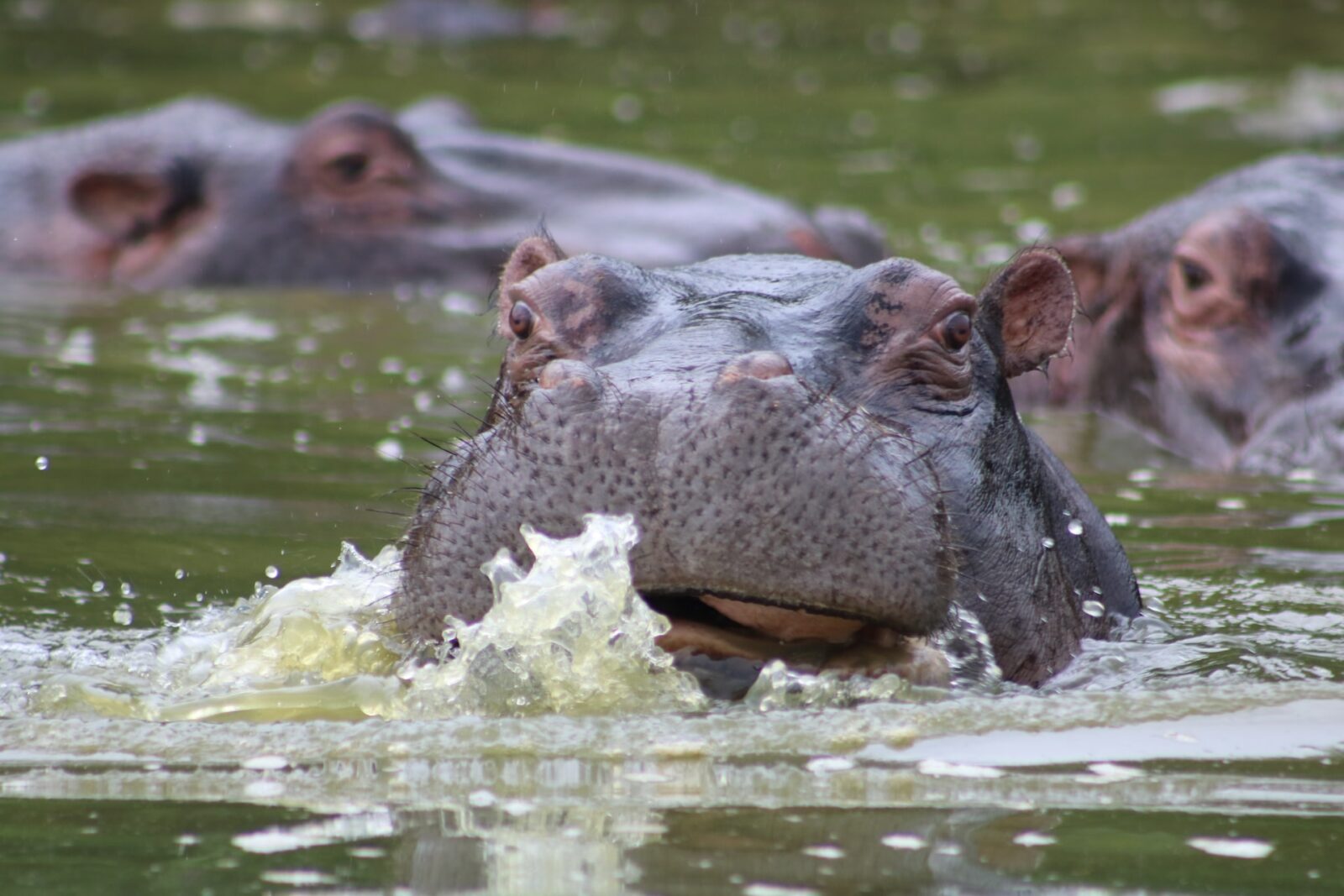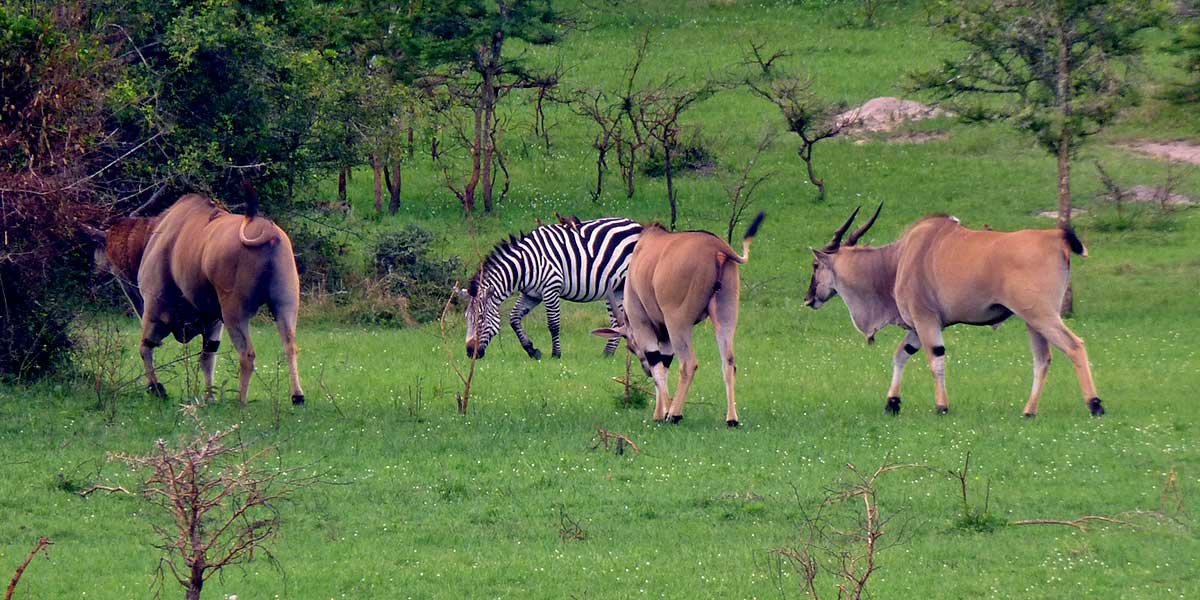Lake Mburo National Park Kayaking: Hidden Gems for Families
Where Adventure and Family Bonding Meet
When travelers think of Uganda, their imagination often drifts toward gorilla trekking in the misty forests of Bwindi, the thunderous falls of Murchison, or the cultural rhythm of Kampala. Yet hidden away in the heart of western Uganda lies a place that blends serenity with adventure, wildlife with intimacy, and exploration with relaxation. That place is Lake Mburo National Park, and within its stunning boundaries, an activity waits to be discovered by families who long for both bonding and discovery: kayaking on Lake Mburo.
Unlike other safari destinations that are dominated by game drives, Lake Mburo offers something more immersive, more tactile, and more connected to the natural world. The still yet lively waters of the lake invite families to paddle together, to listen to the calls of birds from the reeds, to catch sight of hippos surfacing quietly nearby, and to share moments that transcend the ordinary. For families, kayaking here is not just about movement on water; it is about creating a shared memory that feels both adventurous and deeply personal.
This guide explores the hidden gems of kayaking in Lake Mburo National Park for families, revealing how this activity becomes more than recreation but a journey that touches nature, nurtures bonds, and opens the door to hidden wonders that many visitors often overlook.
Why Lake Mburo National Park is Perfect for Families
Lake Mburo National Park is the smallest of Uganda’s savannah national parks, yet it is a place where size does not equate to limitation. Instead, the park’s compact nature makes it uniquely suited to families traveling with children or elderly members. Distances are manageable, activities are not overwhelming, and the landscapes are easily accessible without losing their sense of wild authenticity.
The lake itself is the jewel of the park, covering a vast portion of its area and acting as both a water source and a hub of life for wildlife. Its calm waters are framed by rolling hills, acacia woodlands, and open savannah. Unlike larger parks where travelers may feel dwarfed by vastness, Lake Mburo offers intimacy. Wildlife is visible at close range, and the water-based activities provide perspectives that are different from the more common game drive.
For families, this intimacy is invaluable. It allows children to stay engaged without fatigue, creates opportunities for safe interaction with nature, and provides parents with peace of mind knowing that activities are balanced between excitement and safety. Kayaking fits perfectly into this setting because it is both adventurous and gentle, providing thrills without the extremities of danger.
The Magic of Kayaking on Lake Mburo
Kayaking in Lake Mburo is an experience unlike any other. From the moment paddles dip into the water, the rhythm of the strokes begins to echo the rhythm of the landscape. The stillness of the lake allows families to glide quietly, becoming part of the environment rather than intruders within it. Every ripple created by the kayak merges into the larger movements of the lake, and soon families realize they are participants in a natural orchestra where every sound, from the call of the African fish eagle to the splash of a tilapia, plays a part.
Wildlife encounters are some of the most captivating aspects of kayaking. Hippos are often seen resting in the shallows, their eyes and nostrils barely visible above water. Families are guided to maintain respectful distances, ensuring safety while still appreciating the grandeur of these animals in their natural element. Nile crocodiles bask on the banks, birds such as kingfishers dart across the water, and herons stand tall in the reeds. Each sighting becomes a teaching moment for children, an opportunity to see the interconnectedness of life in real time.
What sets kayaking apart from other activities in the park is its quiet immersion. Game drives, though exciting, often involve engines and distance. Walking safaris, though intimate, remain on land. Kayaking, however, allows families to float within the very heart of the ecosystem. The lake is alive, and when families paddle through its channels, they experience the pulse of nature in the most direct way possible.
Hidden Gems Revealed Through Kayaking
Many visitors to Lake Mburo National Park remain confined to game drives or short boat rides, missing the hidden gems that kayaking reveals. Families who embark on this activity discover places that cannot be accessed by vehicles and rarely by foot.
One of these hidden gems lies in the small inlets and channels that weave through reeds and papyrus swamps. Kayaks can glide quietly into these narrow passages, revealing nesting sites for birds, resting places for otters, and a world of smaller yet equally important life forms. Children often find this enchanting, as every corner seems to reveal something new and unexpected.
Another gem is the vantage point kayaking provides at sunrise and sunset. Early morning paddles bring with them misty waters, golden light filtering across the lake, and a sense of peace that feels almost sacred. Families find themselves whispering as though in a cathedral, reluctant to break the silence. In the evenings, the lake transforms into a mirror reflecting the fiery African sky, and paddling at that hour becomes a memory forever etched in the heart.
Cultural interactions are also hidden treasures within the kayaking experience. Families are sometimes taken to local fishing communities along the lake’s edges. Observing the techniques of fishermen, listening to stories about life by the water, and even tasting freshly grilled tilapia become highlights of the trip. These moments connect families not only to nature but also to the people whose lives are intertwined with the lake.
Safety and Accessibility for Families
One of the greatest strengths of kayaking at Lake Mburo is that it remains both safe and accessible for families. Professional guides trained in water safety accompany every trip, ensuring that even first-time paddlers feel secure. Life jackets are provided for all participants, including children, and safety briefings are conducted before embarking on the water.
The lake’s calm conditions make it ideal for beginners. Unlike white water rafting, which demands strength and courage, kayaking in Lake Mburo emphasizes rhythm, teamwork, and balance. Families find joy in paddling together, and even children can participate under supervision, making it a truly inclusive activity.
Accommodations in and around the park are designed to welcome families, with lodges offering child-friendly menus, family rooms, and recreational spaces. Many lodges even coordinate with park guides to create family-specific itineraries where kayaking is paired with nature walks, game drives, and storytelling sessions around the fire. The entire experience is designed to ensure that every member of the family, regardless of age, feels included and engaged.
Combining Kayaking with Other Family Adventures
Kayaking may be the highlight, but Lake Mburo National Park offers other complementary experiences that make a family visit richer and more fulfilling. Game drives reveal zebras grazing in open grasslands, impalas leaping gracefully across the savannah, and herds of buffalo moving in unison. Children often find delight in spotting giraffes, their long necks stretching against the acacia trees, or warthogs dashing with comical urgency through the grass.
Walking safaris are another unique offering of Lake Mburo, allowing families to step quietly into the bush guided by armed rangers. These walks provide an educational perspective, where plants, animal tracks, and insects are given as much attention as larger wildlife. For children, this becomes a living classroom where curiosity is encouraged and rewarded.
Horseback safaris add yet another dimension, allowing families to explore landscapes in silence, blending seamlessly into the environment. The absence of engine noise allows wildlife to remain relaxed, offering closer encounters and a sense of harmony with the surroundings.
By combining kayaking with these activities, families experience the park from multiple perspectives: the water, the land, and the saddle. The variety ensures that boredom is never an option and that every day brings fresh discoveries.
Best Time for Families to Kayak in Lake Mburo
Timing plays a significant role in ensuring that kayaking becomes a rewarding experience. The dry seasons, from June to September and December to February, are often considered the best times. During these months, the lake levels remain stable, wildlife is easier to spot, and the weather is conducive for outdoor activities. Families also benefit from clearer skies and the possibility of stunning sunrises and sunsets over the water.
However, even during the rainy seasons, kayaking retains its charm. The rains bring freshness to the landscape, filling the lake and encouraging bird activity. Families who venture out during these periods often find the park quieter, with fewer visitors and more opportunities for private exploration. With proper preparation and guidance, any season can be suitable for kayaking in Lake Mburo, as the lake rarely becomes dangerous for small craft.
Practical Considerations for Families
Families planning to kayak in Lake Mburo must consider practical aspects to ensure a smooth experience. Transport to the park is straightforward, as it lies conveniently along the route between Kampala and Mbarara. The drive from Kampala takes about four hours, making it possible for families to reach without exhaustion.
Health and safety should always be prioritized. Sunscreen, hats, and hydration are essential when spending time on the lake. Light clothing suitable for both paddling and relaxing afterward is recommended. Guides often provide waterproof bags to store valuables, ensuring that cameras, phones, and documents remain safe.
Accommodation choices range from budget-friendly tented camps to luxurious lodges overlooking the lake. Families are advised to book in advance, especially during peak seasons, to secure rooms that suit their preferences. Many lodges also offer family packages that include guided activities, meals, and cultural experiences.
Why Kayaking at Lake Mburo is a Hidden Family Treasure
Kayaking at Lake Mburo is not just another activity in Uganda’s long list of attractions; it is a hidden treasure that speaks directly to families. It provides a balance between adventure and calm, between wildlife and bonding, between education and entertainment. The memories created on the water—whether it is the laughter of children paddling with parents, the awe of spotting a hippo nearby, or the quiet reflection during a golden sunset—become stories retold for years.
What makes it truly special is that it remains underexplored. Unlike more commercialized activities, kayaking in Lake Mburo retains its authenticity. Families can savor the experience without being rushed or crowded, ensuring that every moment feels personal and significant.
Turning Family Adventures into Lasting Memories
Lake Mburo National Park may be small, but it offers families something profoundly large in impact: the chance to explore together, learn together, and grow together. Kayaking on Lake Mburo becomes more than a recreational activity; it transforms into a shared journey that strengthens bonds and enriches understanding of nature.
For those seeking to turn their family adventures into lasting memories, this hidden gem is an essential addition to any Ugandan itinerary. The waters of Lake Mburo hold secrets that only paddles can unlock, and the joy of discovering them as a family is an experience beyond measure.
To ensure that every aspect of this journey is carefully crafted and authentically experienced, families are encouraged to book their Africa tours and safaris through WildHorn Africa. With expertise in creating family-centered itineraries, WildHorn Africa guarantees that kayaking in Lake Mburo—and every other adventure across Uganda—becomes a story worth telling for generations.






